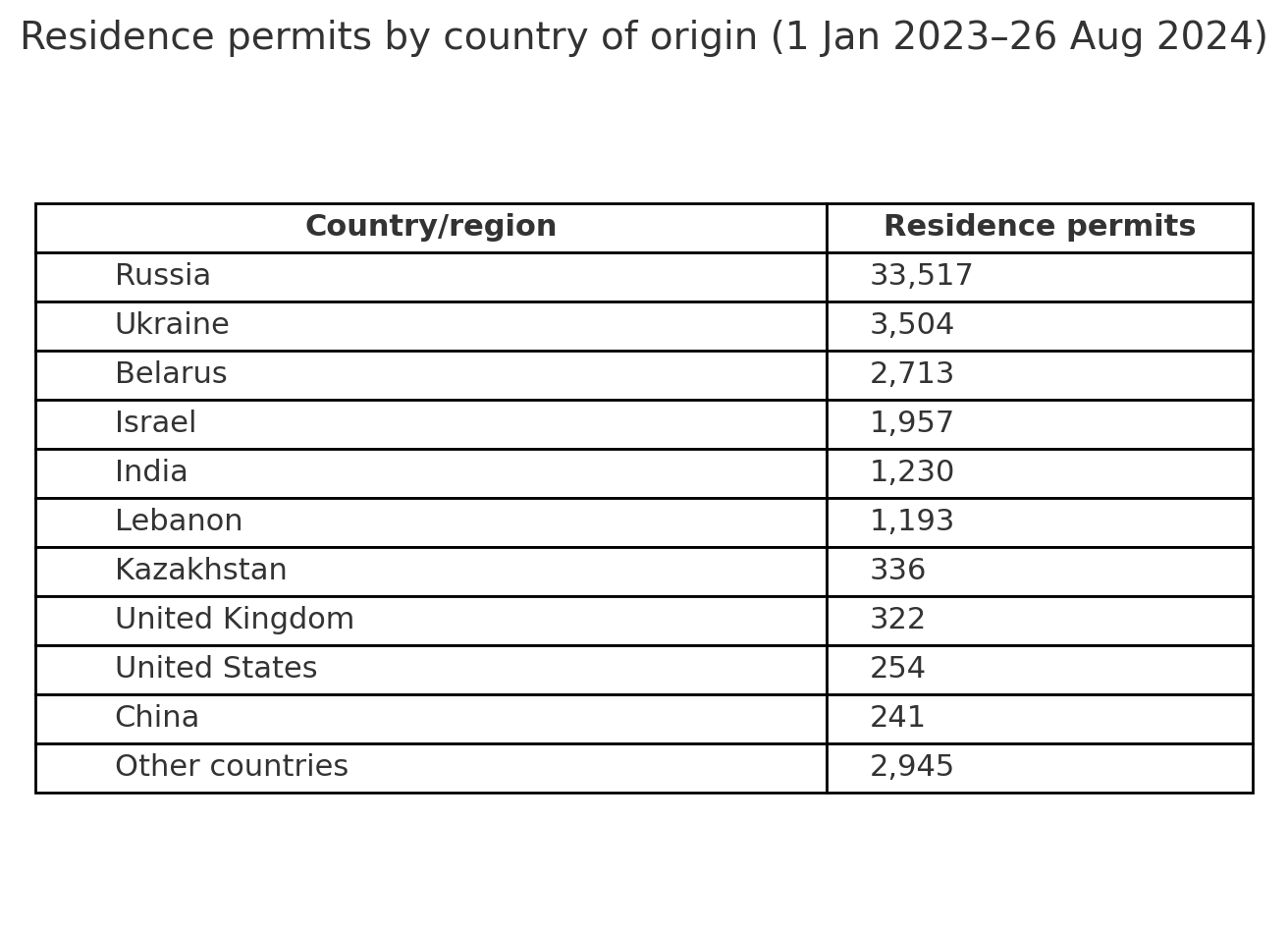Cyprus is emerging as a rising force in the technology sector. A recent KPMG Cyprus study estimates the sector’s total economic impact, direct and indirect, at more than €8 billion. Alongside the growth, a key challenge is the labour force, with the local market unable to meet the specialised needs of tech firms that have relocated to the island.
Policy response to talent shortages
Successive governments have sought to bridge the talent gap through the Business Facilitation Unit, a digital nomad visa, and streamlined procedures for temporary residence and work permits for third country nationals employed by foreign interest companies operating in Cyprus.
From 1 January 2023 to 26 August 2024, the Republic of Cyprus issued 48,212 residence permits to third country nationals, covering employees and their family members under the strategy to attract technology companies. Permits issued to employees of tech companies over the past two years approached 21,000. These figures were released by Interior Minister Constantinos Ioannou in response to a parliamentary question from Volt MP Alexandra Attalides dated 24 July 2024, based on data from the Deputy Ministry of Migration and International Protection.

Table 1: Number of residence permits to third country nationals (tech employees and their families)
For 2023, employees in foreign interest companies totalled 12,239, and for 2024 to 26 August the number was 8,758. Family members granted residence permits under family reunification were 15,864 in 2023 and 9,189 in 2024. Dependants recorded as visitors were 1,559 in 2023 and 603 in 2024. In all, 48,212 employees and family members received residence permits in the period above.
Countries of origin
The overwhelming majority of permit holders during the period came from Russia, followed by Ukraine and Belarus, with notable numbers also from Israel, India and Lebanon.

Table 2: Residence permits by country of origin (tech employees and their families)
From 1 January 2023 to 26 August 2024, the figures were as follows: Russia 33,517, Ukraine 3,504, Belarus 2,713, Israel 1,957, India 1,230, Lebanon 1,193, Kazakhstan 336, United Kingdom 322, United States 254, China 241, and a further 2,945 from other countries.
Impact on society and the economy
Beyond the headline numbers, questions remain about how this influx affects Cypriot society and the economy. Rising living costs across entire areas, with Limassol standing out, highlight the pressures that accompany rapid sectoral growth.
